
Hear from top national experts on the legal, bioethical, and policy issues in research with all data types – issues in data collection, analysis to ensure replicability, storage, and sharing. Join us to consider data ethics, communication, and digital privacy. Local experts will also analyze the challenges of responsibly using big data and ethical use of data in health-related research, including consent, confidentiality, and sensitivity to participant concerns.As a large, public, land-grant research university, we aim to explore these vital issues with our faculty, staff, trainees, students, and community, as well as national audience.
Agenda
|
8:30 a.m. |
Welcome and Introductions |
|
Moderator: Susan M. Wolf, JD, McKnight Presidential Professor of Law, Medicine & Public Policy; Faegre Baker Daniels Professor of Law; Professor of Medicine; Chair, Consortium on Law and Values in Health, Environment & the Life Sciences, University of Minnesota Joan T.A. Gabel, JD, President, University of Minnesota |
|
|
8:45 a.m. |
The Data Challenge: Collecting, Storing & Managing Data Responsibly |
|
Moderator: Christopher J. Cramer, PhD, Vice President for Research; Distinguished McKnight University Professor, Department of Chemistry, University of Minnesota Dina N. Paltoo, PhD, MPH, Assistant Director for Policy Development, National Library of Medicine, National Institutes of Health (NIH) Q & A |
|
|
9:45 a.m. |
Creating and Managing Big Data in 21st Century Research: Ethical Issues |
|
Moderator: Susan M. Wolf, JD Constantin Aliferis, MD, PhD, Professor of Medicine; Director, Institute for Health Informatics; Chief Research Informatics Officer, University of Minnesota Sameer Badlani, MD, FACP, Chief Information Officer, M Health Fairview Q & A |
|
|
10:45 a.m. |
Sharing Data Responsibly with Researchers, Citizen Scientists & Participants |
|
Moderator: Milton Eder, PhD, Assistant Professor, Department of Family Medicine and Community Health; Director, Community Engagement to Advance Research and Community Health (CEARCH), Clinical and Translational Science Institute (CTSI), University of Minnesota Michelle N. Meyer, JD, PhD, Assistant Professor, Center for Translational Bioethics & Health Care Policy; Associate Director for Research Ethics, Geisinger Health System |
|
|
11:45 a.m. |
Break |
|
Noon |
Panel Discussion |
|
Moderator: Douglas Yee, MD, John H. Kersey Chair in Cancer Research; Professor, Medicine and Pharmacology; Director, Masonic Cancer Center, University of Minnesota The speakers will join these panelists for a panel discussion with the audience: Wendy Pradt Lougee, MS, MA, McKnight Presidential Professor; University Librarian and Dean of Libraries, University of Minnesota Sue Abderholden, MPH, Executive Director, National Alliance on Mental Illness (NAMI) Minnesota; Member, Community Oversight Board, Office of the Vice President for Research, University of Minnesota Sameer Badlani, MD, FACP, Chief Information Officer, M Health Fairview Michael J. Dockry, PhD, Assistant Professor, Department of Forest Resources; Affiliate Faculty Member, American Indian Studies Department, University of Minnesota Vipin Kumar, PhD, Regents Professor and William Norris Endowed Chair, Department of Computer Science & Engineering, University of Minnesota |
|
|
1:25 p.m. |
Closing Remarks |
|
1:30 p.m. |
Adjourn |
Speaker Biographies
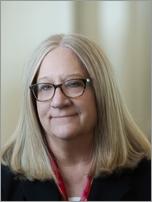
Sue Abderholden, MPH, is the Executive Director of NAMI (National Alliance on Mental Illness) Minnesota, where she focuses on ending the discrimination faced by children and adults with mental illnesses and their families. Over the past nearly 40 years, Ms. Abderholden has successfully fought for community and family support and for laws that enable people with disabilities to fully participate in society. She has held positions with The Arc Minnesota, U.S. Senator Paul D. Wellstone, and the PACER Center (Minnesota’s Parent Training and Information Center) and has received numerous awards for her advocacy.
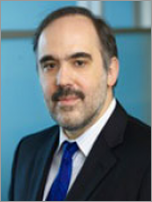
Constantin Aliferis, MD, MS, PhD, FACMI, is Professor of Medicine, Director of the Institute for Health Informatics (IHI), and Chief Research Informatics Officer for the Clinical and Translational Science Institute (CTSI) at the University of Minnesota. He leads CTSI’s Biomedical Informatics Program (BMIP), where he oversees the Best Practices Informatics Core, a consulting and collaborative science core created to generate and link datasets on demand, architect systems, perform sophisticated modeling and analysis, and assemble multidisciplinary teams to meet researcher needs. His research is focused on high dimensional modeling and analysis designed to transform biomedical data into novel actionable scientific knowledge.
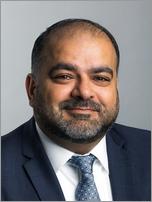
Sameer Badlani, MD, FACP , leads M Health Fairview’s information technology services, leveraging his experience as a clinician and IT executive to improve and enable safe, high-quality, and efficient clinical care operations and delivery. His focus is deploying innovative technologies and processes that support the transformation of employee and patient experiences, while building the next generation digital core for their integrated delivery network. Prior to joining M Health Fairview, Sameer served as the Chief Health Information Officer and System Vice President of Enterprise Data Management and Analytics at Sutter Health. Previous roles included Chief Health Information Officer at Intermountain and Chief Medical Information Officer at University of Chicago Medical Center and School of Medicine. He is a national speaker and educator on topics of digital transformation, data and analytics, and innovation.
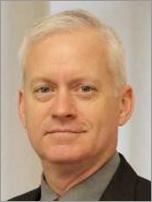
Christopher J. Cramer, PhD, is Vice President for Research at the University of Minnesota. Prior to joining the Office of the Vice President for Research (OVPR), Prof. Cramer was a Distinguished McKnight and University Teaching Professor in the College of Science and Engineering, where he also served as Associate Dean for Research and Planning and for Academic Affairs. Prof. Cramer served as the Editor-in-Chief of Theoretical Chemistry Accounts for 15 years and as an Associate Editor for the Journal of Physical Organic Chemistry for 20. He has been recognized as a Fellow by the American Chemical Society, as well as by the Alfred P. Sloan and John Simon Guggenheim foundations, and his recent research has been supported by the Department of Energy, the National Science Foundation, and the Defense Threat Reduction Agency.
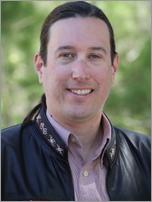
Michael J. Dockry, PhD, is an Assistant Professor in the Department of Forest Resource and Affiliate Faculty Member in the American Indian Studies Department at the University of Minnesota. His research supports interdisciplinary sustainable natural resource management research with a focus on: Tribal and Indigenous natural resource management and the integration of Traditional Ecological Knowledge, strategic foresight and land management planning, and institutional diversity and inclusion. The goal of his work is to foster collaborative and respectful research relationships and to support natural resource management to meet community goals.
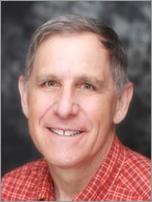
Milton (“Mickey”) Eder, PhD, is Assistant Professor in the Department of Family Medicine and Community Health and Director of the Clinical and Translational Science Institute’s (CTSI) Community Engagement to Advance Research and Community Health (CEARCH) core. CEARCH supports community and academic teams who implement, manage, and evaluate a research program that engages diverse communities in translational science. He also serves on multiple External Advisory Boards for other Clinical and Translational Science Award sites across the country.
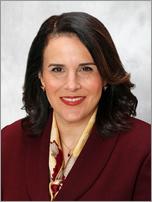
Joan T.A. Gabel, JD, is President of the University of Minnesota. She leads the University’s mission by honoring its legacy as a place of discovery and opportunity, while emphasizing solutions inspired by Minnesotans that serve our state and change the world. Previously President Gabel was the Executive Vice President for Academic Affairs and Provost at the University of South Carolina. Prior to becoming South Carolina’s chief academic officer, President Gabel served as Dean of the University of Missouri’s Trulaske College of Business.

Vipin Kumar, PhD, is a Regents Professor at the University of Minnesota, where he holds the William Norris Endowed Chair in the Department of Computer Science and Engineering. He has authored over 300 research articles, and has co-edited or co-authored 10 books. His current major research focus is on bringing the power of big data and machine learning to understand the impact of human-induced changes on the Earth and its environment. Prof. Kumar served as the Lead Principal Investigator of a 5-year, $10 Million project on "Understanding Climate Change: A Data Driven Approach," funded by the National Science Foundation's Expeditions in Computing program that is aimed at pushing the boundaries of computer science research.
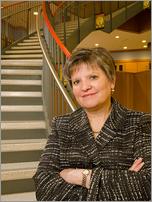
Wendy Pradt Lougee, MA, MS, is University Librarian and Dean of Libraries and McKnight Presidential Professor at the University of Minnesota-Twin Cities. The University Libraries have been recognized with the National Medal for Museums and Libraries in 2017 and the 2009 Excellence in Academic Libraries award from the Association of College and Research Libraries. The University of Minnesota Libraries have been a lead in programs to support research analytics, spatial data, and data curation. Current service includes the HathiTrust Board and Unizin Board. Dean Lougee’s research and publications have focused on digital library development, information economics, assessment of research behavior, virtual organizations, and e-research.

Michelle N. Meyer, PhD, JD, is an Assistant Professor at Geisinger Health System and Geisinger Commonwealth School of Medicine, where she co-directs an interdisciplinary lab that investigates judgments and decision-making related to research, innovation, and healthcare. She is also Associate Director for Research Ethics at Geisinger, chairs Geisinger's IRB Leadership Committee, directs its Research Ethics Advice and Consulting Service, and serves on its AI Governance Committee. Finally, she is the Faculty Co-Director of the Behavioral Insights Team (BIT) in Geisinger’s Steele Institute for Health Innovation. She has written and spoken about, and served on several boards and committees concerned with, data sharing and access.

Dina N. Paltoo, PhD, MPH, is the Assistant Director for Policy Development, Office of the Director, National Library of Medicine (NLM) at the National Institutes of Health (NIH). Dr. Paltoo leads NLM’s policy and legislative activities, which promote stewardship and access to scientific and clinical data and information, as well as health information technology. She also works across the NIH and Federal agencies on initiatives and activities relevant to these topics, including open science and data science. Prior to joining NLM, Dr. Paltoo was the Director of the Division of Scientific Data Sharing Policy within the NIH Director’s Office of Science Policy (OSP). While there, she was responsible for NIH policy efforts in scientific data sharing and management, open science, and genomics and health, including, for example, NIH policies for the sharing of genomic data and the NIH-Lacks family agreement and policy on the sharing of HeLa genome sequence data. She previously was the Director of the Genetics, Health, and Society Program in OSP. Dr. Paltoo joined OSP from NIH’s National Heart, Lung, and Blood Institute (NHLBI), where she was a Program Director in genetics, pharmacogenetics, and personalized medicine and led activities to promote the sharing of these and other data.
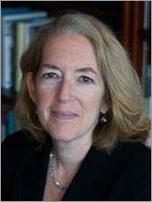
Susan M. Wolf, JD, is McKnight Presidential Professor of Law, Medicine & Public Policy; Faegre Baker Daniels Professor of Law; and Professor of Medicine at the University of Minnesota. Prof. Wolf is Chair of the Consortium on Law and Values in Health, Environment & the Life Sciences. She is an elected member of the National Academy of Medicine (NAM) and a Fellow of the American Association for the Advancement of Science. Her research has been supported by the National Institutes of Health (NIH) and National Science Foundation (NSF), as well as private foundations including the Robert Wood Johnson Foundation and The Greenwall Foundation.
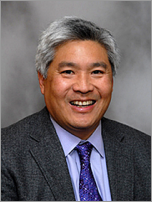
Douglas Yee, MD, is Director of the Masonic Cancer Center, Professor of Medicine and Pharmacology, and John H. Kersey Chair in Cancer Research at the University of Minnesota. As Director of the Cancer Center, he serves as the point person for all cancer research at the University. He also treats patients with breast cancer and conducts research to improve cancer therapies.

Michael Zimmer, PhD, is an Associate Professor in the Department of Computer Science at Marquette University. He is Co-Director of the Social and Ethical Computing Lab, and also co-directs the interdisciplinary Data Science major. With a multidisciplinary background in communication & Internet studies, science & technology studies, and information policy & ethics, Prof. Zimmer studies the social and ethical dimensions of our contemporary digital ecosystem, with particular interest in digital privacy, data ethics, internet research ethics, and how users understand information flows within and across digital platforms. He has conducted research supported by the National Science Foundation (NSF), the National Institutes of Health (NIH), and the Institute of Museum and Library Services. Among his current projects are “PERVADE: Pervasive Data Ethics for Computational Research” (NSF-funded), “Mapping Privacy and Surveillance Dynamics in Emerging Mobile Ecosystems” (NSF-funded), and curating The Zuckerberg Files, a digital library of all the public utterances of Facebook’s founder and CEO, Mark Zuckerberg. Zimmer is a member of the advisory board for The Future of Privacy Forum, and advises other research projects and advocacy groups. In 2019, he was named to the Association for Computing Machinery’s (ACM) inaugural Global Technology Policy Council.
Planning Committee

Susan M. Wolf, JD, is Chair of the conference planning committee. She is McKnight Presidential Professor of Law, Medicine & Public Policy; Faegre Baker Daniels Professor of Law; and Professor of Medicine at the University of Minnesota. Prof. Wolf is Chair of the Consortium on Law and Values in Health, Environment & the Life Sciences. She is an elected member of the National Academy of Medicine (NAM) and a Fellow of the American Association for the Advancement of Science. Prof. Wolf's research has been supported by the National Institutes of Health (NIH) and National Science Foundation (NSF) as well as private foundations including the Robert Wood Johnson Foundation and The Greenwall Foundation.

Christopher Cramer, PhD, is Vice President for Research; Distinguished McKnight Professor and University Teaching Professor at the University of Minnesota. Areas of research includes modeling catalysis to advance sustainable chemistry and chemical processes, molecular and material phenomena associated with solar energy devices, theoretical characterization of small-molecule activation at transition-metal centers, and modeling remediation of environmental contaminants and chemical warfare agents.

Milton "Mickey" Eder, PhD, is Assistant Professor in the Department of Family Medicine and Community Health and Director of the Clinical and Translational Science Institute’s (CTSI) Community Engagement to Advance Research and Community Health (CEARCH) core. CEARCH supports community and academic teams who implement, manage, and evaluate a research program that engages diverse communities in translational science. He also serves on multiple External Advisory Boards for other Clinical and Translational Science Award sites across the country.
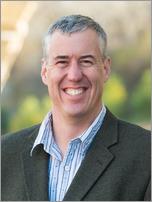
J. Michael Oakes, PhD, is Associate Vice President for Research and Professor, Division of Epidemiology and Community Health in the School of Public Health at the University of Minnesota. Associate Vice President Oakes has regulatory and compliance responsibilities associated with the Human Research Protection Program (HRPP), Institutional Review Board (IRB), the Research Compliance Office (RCO), and several academic centers and institutes in the Office of the Vice President for Research (OVPR). He also serves as OVPR’s point person for the AHC restructuring plan. He currently directs the Interdisciplinary Research Leaders (IRL), a nationwide research leadership program supported by the Robert Wood Johnson Foundation.
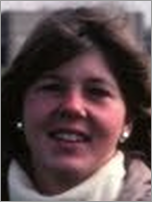
Sarah Waldemar is Director of the Research Compliance Office, an independent unit that helps ensure that University of Minnesota research complies with relevant laws, rules, policies, and guidelines. She has served the University for more than 37 years, including as Director of Research Education and Oversight; Head of the Office of Oversight, Analysis, and Reporting; and Administrative Director of the Division of Environmental Health Sciences in the School of Public Health. She has coordinated multi-center clinical trials and been a leader in the University’s risk recalibration activities. She holds a B.A. from the University of Minnesota and is a graduate of Minnesota Partnership for Executive Leadership Development.

Douglas Yee, MD, is Director of the Masonic Cancer Center, Professor of Medicine and Pharmacology, and John H. Kersey Chair in Cancer Research at the University of Minnesota. As Director of the Cancer Center, he serves as the point person for all cancer research at the University. He also treats patients with breast cancer and conducts research to improve cancer therapies.
Resources
Background articles and websites that may be useful for this conference include:
-
Cohen IG, Mello MM. Big Data, Big Tech, and Protecting Patient Privacy. JAMA 2019;322(12):1141-1142.
-
Floridi L, Taddeo M. What Is Data Ethics? Phil Trans R Soc A 2016;374(2083): http://doi.org/10.1098/rsta.2016.0360.
-
Ienca M, Ferretti A, Hurst S, Puhan M, Lovis C, Vayena E. Considerations for Ethics Review of Big Data Health Research: A Scoping Review. PLoS ONE 2018;13(10): e0204937. https://doi.org/10.1371/journal.pone.0204937.
-
Kalkman S, Mostert M, Gerlinger C, Van Delden JJM, van Thiel GJMW. Responsible Data Sharing in International Health Research: A Systematic Review of Principles and Norms. BMC Med Ethics 2019;20(1):21. https://doi.org/10.1186/s12910-019-0359-9.
-
Kinder-Kurlanda K, Zimmer M. Web Research Ethics: Confidentiality, Consent, Data Integrity & More. WebSci ’19 Companion 2019:21–22.
-
Mello MM, Triantis G, Stanton R, Blumenkranz, Studdert DM. Waiting for Data: Barriers to Executing Data Use Agreements. Science 2020;367(6474):150-152.
-
Meyer MN. Practical Tips for Ethical Data Sharing. AMPPS 2018;1(1):131–144.
-
National Academies. Forecasting Costs for Preserving, Archiving, and Promoting Access to Biomedical Data. The National Academies of Sciences, Engineering, and Medicine (2019).
-
National Academies. Forest Health and Biotechnology: Possibilities and Considerations. Washington, DC: The National Academies Press (2019).
-
National Academies. Open Science by Design: Realizing a Vision for 21st Century Research. Washington, DC: The National Academies Press (2018).
-
National Academies. Returning Individual Research Results to Participants: Guidance for a New Research Paradigm. Washington, DC: The National Academies Press (2018).
-
National Science Foundation. Dissemination and Sharing of Research Results. Office of Budget Finance and Award Management (2019).
-
NIH.gov. Health Information Technology and Health Data Standards at NLM. U.S. National Library of Medicine (2019).
-
NIH.gov. NIH Genomic Data Sharing. Office of Science Policy (2015).
-
NIH.gov. NIH Needs Your Feedback on a DRAFT NIH Policy for Data Management and Sharing. Office of Extramural Research (2019).
-
NIH.gov. NIH Strategic Plan for Data Science. Office of Strategic Coordination – The Common Fund (2019).
-
NIH.gov. NIH Strategic Plan for Tribal Health Research FY 2019-2023. Tribal Health Research Office (2019).
-
Piller C. Transparency on Trial. Science 2020;367(6475):240-243.
-
Roomian T, Paltoo DN, Rodriguez LL, Feolo M. Data Use Under the NIH GWAS Data Sharing Policy and Future Directions. Nat Genet 2014;46(9):934–938.
-
Zimmer M. Addressing Conceptual Gaps in Big Data Research Ethics: An Application of Contextual Integrity. SM+S 2018;4(2): https://doi.org/10.1177/2056305118768300.
-
Zimmer M. Creating and Managing Big Data in 21st Century Research: Ethical Issues. [PowerPoint slides] (2020).
-
Zook M, Barocas S, Boyd D, Crawford K, Keller E, Gangadharan SP, Goodman A, Hollander R, Koenig BA, Metcalf J, Narayanan A, Nelson A, Pasquale F. Ten Simple Rules for Responsible Big Data Research. PLoS Comput Biol 2017;13(3): https://doi.org/10.1371/journal.pcbi.1005399.
Presented by the Office of the Vice President for Research; Consortium on Law and Values in Health, Environment & the Life Sciences; Masonic Cancer Center; and Clinical and Translational Science Institute, University of Minnesota.
This conference is part of Research Ethics Week (March 2-6, 2020), during which the University of Minnesota focuses on professional development and best practices to ensure safety and integrity in research. A complete list of Research Ethics Week events is available.
Continuing Education Information:
Accreditation Statement
In support of improving patient care, University of Minnesota, Interprofessional Continuing Education is jointly accredited by the Accreditation Council for Continuing Medical Education (ACCME), the Accreditation Council for Pharmacy Education (ACPE), and the American Nurses Credentialing Center (ANCC) to provide continuing education for the healthcare team.
Credit Designation Statements
American Medical Association (AMA)
The University of Minnesota, Interprofessional Continuing Education designates this live activity (enduring material) for a maximum of 4.5 AMA PRA Category 1 Credits™. Physicians should claim only the credit commensurate with the extent of their participation in the activity.
Other Healthcare Professionals
Other healthcare professionals who participate in this CE activity may submit their statement of participation to their appropriate accrediting organizations or state boards for consideration of credit. The participant is responsible for determining whether this activity meets the requirements for acceptable continuing education.
Continuing Legal Education (CLE)
4.25 Continuing Legal Education (CLE) credits have been approved. Event code: 280958
To earn Continuing Education credits, webcast viewers must email us at [email protected] during the webcast to confirm their wish to receive CE credits. Later viewing of this video will not qualify for credit.
Educational Objectives for this conference include:
- Describe the challenges posed by data collection, management, and sharing. Articulate core principles and ethical frameworks and how they should influence research ethics and clinical care. Describe best practices.
- Describe evolving guidance and regulations. Discuss current guidance and regulations, showing how they apply to data management challenges, including in research and clinical contexts.
- Outline key changes in the research landscape and emerging research capabilities. Discuss best practices for responsible data management in this context.